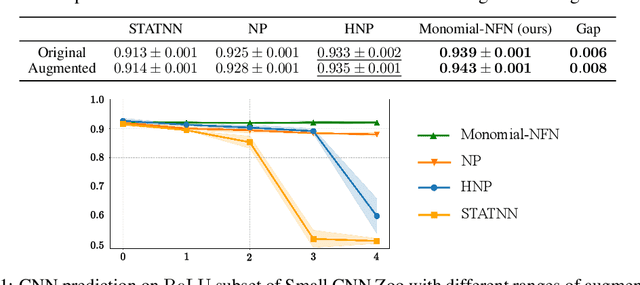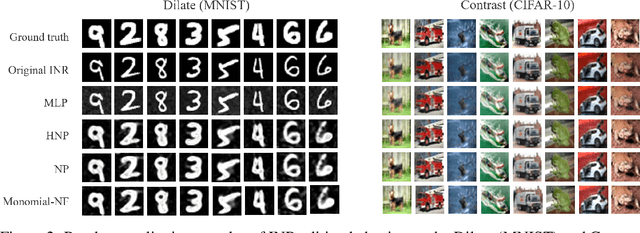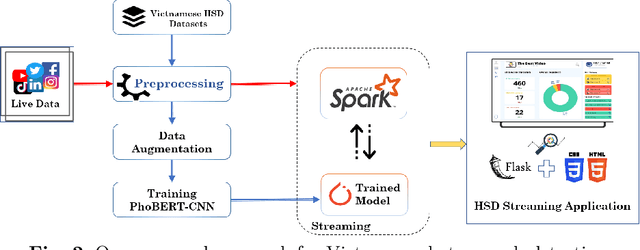An T. Nguyen
Monomial Matrix Group Equivariant Neural Functional Networks
Sep 18, 2024



Abstract:Neural functional networks (NFNs) have recently gained significant attention due to their diverse applications, ranging from predicting network generalization and network editing to classifying implicit neural representation. Previous NFN designs often depend on permutation symmetries in neural networks' weights, which traditionally arise from the unordered arrangement of neurons in hidden layers. However, these designs do not take into account the weight scaling symmetries of $\operatorname{ReLU}$ networks, and the weight sign flipping symmetries of $\operatorname{sin}$ or $\operatorname{tanh}$ networks. In this paper, we extend the study of the group action on the network weights from the group of permutation matrices to the group of monomial matrices by incorporating scaling/sign-flipping symmetries. Particularly, we encode these scaling/sign-flipping symmetries by designing our corresponding equivariant and invariant layers. We name our new family of NFNs the Monomial Matrix Group Equivariant Neural Functional Networks (Monomial-NFN). Because of the expansion of the symmetries, Monomial-NFN has much fewer independent trainable parameters compared to the baseline NFNs in the literature, thus enhancing the model's efficiency. Moreover, for fully connected and convolutional neural networks, we theoretically prove that all groups that leave these networks invariant while acting on their weight spaces are some subgroups of the monomial matrix group. We provide empirical evidences to demonstrate the advantages of our model over existing baselines, achieving competitive performance and efficiency.
Vietnamese Hate and Offensive Detection using PhoBERT-CNN and Social Media Streaming Data
Jun 01, 2022



Abstract:Society needs to develop a system to detect hate and offense to build a healthy and safe environment. However, current research in this field still faces four major shortcomings, including deficient pre-processing techniques, indifference to data imbalance issues, modest performance models, and lacking practical applications. This paper focused on developing an intelligent system capable of addressing these shortcomings. Firstly, we proposed an efficient pre-processing technique to clean comments collected from Vietnamese social media. Secondly, a novel hate speech detection (HSD) model, which is the combination of a pre-trained PhoBERT model and a Text-CNN model, was proposed for solving tasks in Vietnamese. Thirdly, EDA techniques are applied to deal with imbalanced data to improve the performance of classification models. Besides, various experiments were conducted as baselines to compare and investigate the proposed model's performance against state-of-the-art methods. The experiment results show that the proposed PhoBERT-CNN model outperforms SOTA methods and achieves an F1-score of 67,46% and 98,45% on two benchmark datasets, ViHSD and HSD-VLSP, respectively. Finally, we also built a streaming HSD application to demonstrate the practicality of our proposed system.
 Add to Chrome
Add to Chrome Add to Firefox
Add to Firefox Add to Edge
Add to Edge